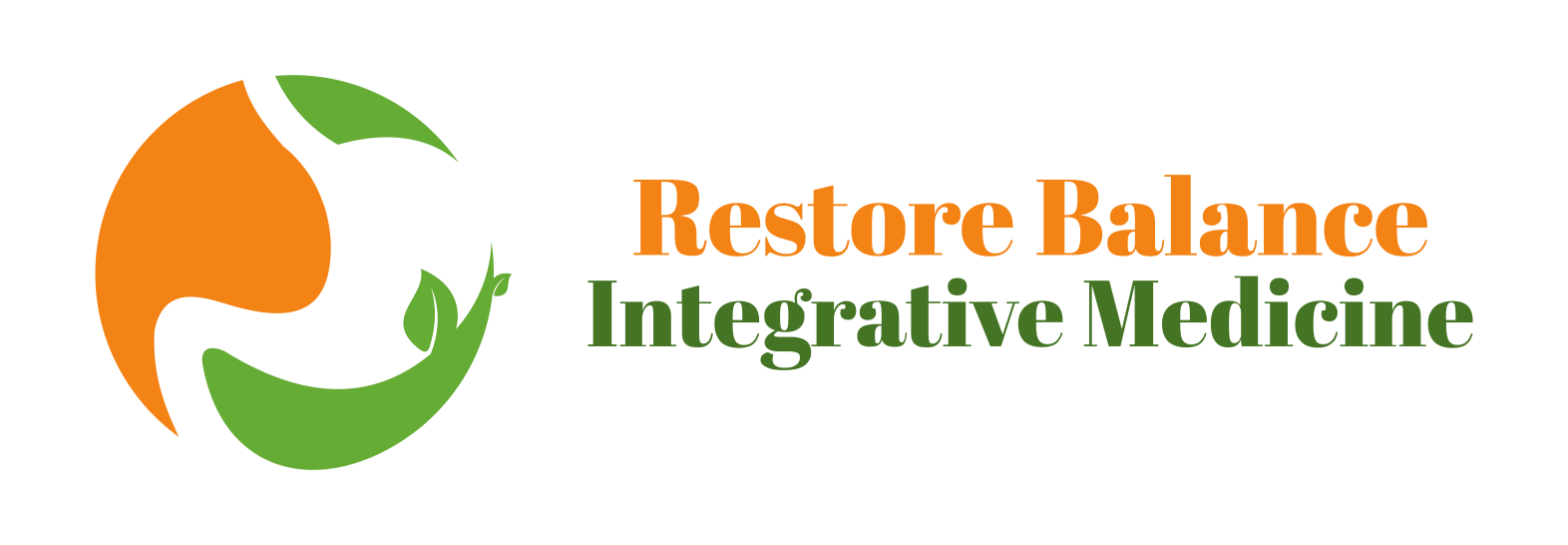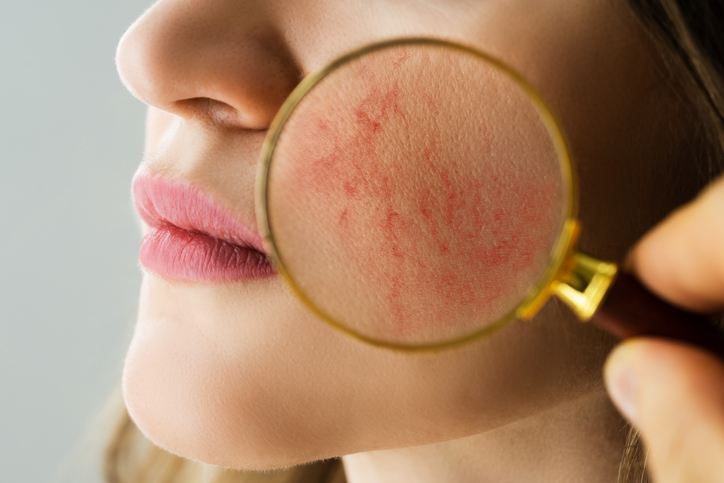What is rosacea
Rosacea is a skin condition that affects approximately 10% of adults. Symptoms commonly include:
- Flushing of the cheeks and nose.
- Visibly enlarged capillaries.
- Papules or pustules that look like yellow-headed pimples.
- Burning, itching, or stinging sensations.
- Enlargement of the nose.
- Dry, irritated eyes with swollen eyelids.
Rosacea usually surfaces between 30-50 years of age. It tends to be more common in women, but symptoms are sometimes more severe in men. It is also more common in fair-skinned people of northern European descent.
Rosacea may develop due to several underlying factors. Current evidence suggests inflammation and imbalances in the nervous system, immune system, and microbiome are the root causes. In addition, researchers report that people with rosacea have ten times as many demodex mites on their skin as healthy people. These mites release Bacillus oleronius bacteria when they die, which can cause inflammation connected to many rosacea symptoms. Other triggers for rosacea symptoms include:
A Root-Cause Approach
Rather than simply trying to reduce or suppress symptoms, it is vital to address the root causes of rosacea. Although rosacea symptoms affect facial skin, they signal a systemic imbalance.
Gut and immune health have a significant impact on skin health. The intestinal tract houses 70-80% of the immune system. Therefore, a gut imbalance leads to a compromised immune system. This imbalance can lead to hyper-reactivity, inflammation, the overgrowth of opportunistic microbes, and the onset of rosacea symptoms.
A root-cause approach to rosacea focuses on the following strategies:
- Removing underlying infections, irritants, and trigger foods.
- Replacing nutrients, enzymes, or stomach acid as needed to improve digestion and absorption.
- Re-inoculating the microbiome with a healthy balance of bacteria.
- Repairing the gut lining and skin.
Dietary Guidelines for Rosacea
Avoid the most common trigger foods for rosacea and all pro-inflammatory foods. These include:
- Refined flour and sugar
- Packaged foods
- Spicy foods
- Alcohol
- Coffee
- Dairy
Instead, focus on a diet rich in colorful vegetables and fruits, leafy greens, lean protein, and healthy fats. Be sure to include foods rich in Omega 3 fatty acids like salmon, sardines, rainbow trout, flax seeds, and chia seeds. Green tea, turmeric, and ginger are excellent additions due to their anti-inflammatory properties.
Herbs and Supplements
Numerous herbs and supplements may help with rosacea. Always check with your doctor or healthcare provider before starting herbs or supplements to ensure they are appropriate for your situation. Micronutrient testing can be a helpful tool to determine which nutrients you need most. Consider the following herbs and supplements:
- Omega 3 EFAs
- Borage & evening primrose oil
- Vitamin B3
- Vitamins A, C, & D
- Glutamine
- Zinc, selenium, & magnesium
- Probiotics
- Chamomile, goldenseal, & barberry

